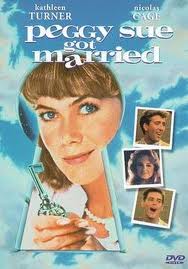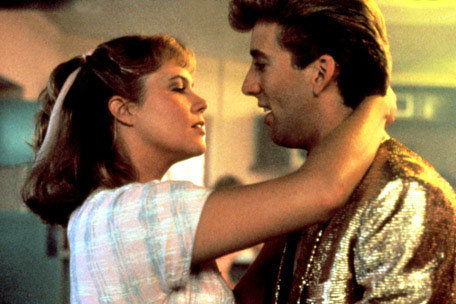 I talk about my grandfather a lot. As I get older, I find that I talk about him more and more. I remember once in high school I was reading The Sound and the Fury to impress some girl and Grampa asked what it was about. I told him and he said “Feh.” Literally. The man literally said “Feh.” He was born in 1910 and he could get away with that sort of thing. Then he said “I don’t like books about something that could actually happen.”
I talk about my grandfather a lot. As I get older, I find that I talk about him more and more. I remember once in high school I was reading The Sound and the Fury to impress some girl and Grampa asked what it was about. I told him and he said “Feh.” Literally. The man literally said “Feh.” He was born in 1910 and he could get away with that sort of thing. Then he said “I don’t like books about something that could actually happen.”
As you might imagine, my grandfather loved science fiction. He and I saw Starman, The Last Starfighter, Star Wars: The Empire Strikes Back, Star Trek IV – basically anything with star in the title. We also saw Back to the Future together at Hilltop Mall in Richmond, California, where I grew up. Time travel was right up Grampa’s alley, so naturally we saw Peggy Sue Got Married – the first movie by Francis Ford Coppola I ever saw. Grampa wasn’t expecting science fiction Coppola style.
I’m more and more convinced, as I make my way through Coppola’s work, that his great genius comes from his relentless dedication to emotional specificity. Broad drama, like broad humor, is designed to appeal to the largest possible audience. Because of that its stories tend to feel like fairy tales: big characters, big action, big emotional arcs. In Back to the Future Marty McFly has to make his mom fall out of love with him and back in love with his dad. You don’t get much broader than that when you’re ripping off the Greeks.
Peggy Sue Got Married looks at the going back to high school theme through a much quieter lense. It’s as simple as whether or not Kathleen Turner’s Peggy Sue can remember why she fell in love with Nicolas Cage’s Charlie. In their adult life Peggy Sue left Charlie after he cheated on her. She’s fallen into a sadness, fantasizing about how her life might have gone if Charlie hadn’t knocked her up all those years ago. At its core Peggy Sue Got Married is about the fantasy that our lives might have been better if only we were smarter or wiser or more courageous.
 All of Coppola’s movies from the post One from the Heart period are tinged with just this kind of nostalgia. The Outsiders, Rumble Fish, Peggy Sure Got Married, Gardens of Stone, and Tucker: A Man and his Dream are all movies that look back, wondering what might have been if only things had been different. It makes sense. Coppola had been at the absolute top of his profession, and even though he was making movies that would be hailed as triumphs of beauty and humanity from anyone else, he was widely seen as a washed up has been. All of these themes cam into stark relief in Peggy Sue Got Married. Fantasy and science fiction stories tend to do that. Like all genre fiction, they are today’s allegorical tales.
All of Coppola’s movies from the post One from the Heart period are tinged with just this kind of nostalgia. The Outsiders, Rumble Fish, Peggy Sure Got Married, Gardens of Stone, and Tucker: A Man and his Dream are all movies that look back, wondering what might have been if only things had been different. It makes sense. Coppola had been at the absolute top of his profession, and even though he was making movies that would be hailed as triumphs of beauty and humanity from anyone else, he was widely seen as a washed up has been. All of these themes cam into stark relief in Peggy Sue Got Married. Fantasy and science fiction stories tend to do that. Like all genre fiction, they are today’s allegorical tales.
Really, the movie’s only barely science fiction. The time travel is never explained, and exists in the same space as the repeated 24 hours of Groundhog Day, that sort of spiritual, dreamy world of who knows what. It’s a lot more like a dream about the power of nostalgia and the certainty of decay. Not what Grampa was expecting.
All I remember as we left the movie theater was that he was particularly silent. At 76, most of his life was about looking back. I was eleven at the time and the emotions of the film were lost on me. But even at that age it would have been hard for me not to notice that my grandfather didn’t hold forth with his usual opinion-making. He didn’t say a word all the way home. And I did wonder, somewhere in the back of my little kid mind, just what my grandfather sees when he looks back at a lifetime of decisions.


